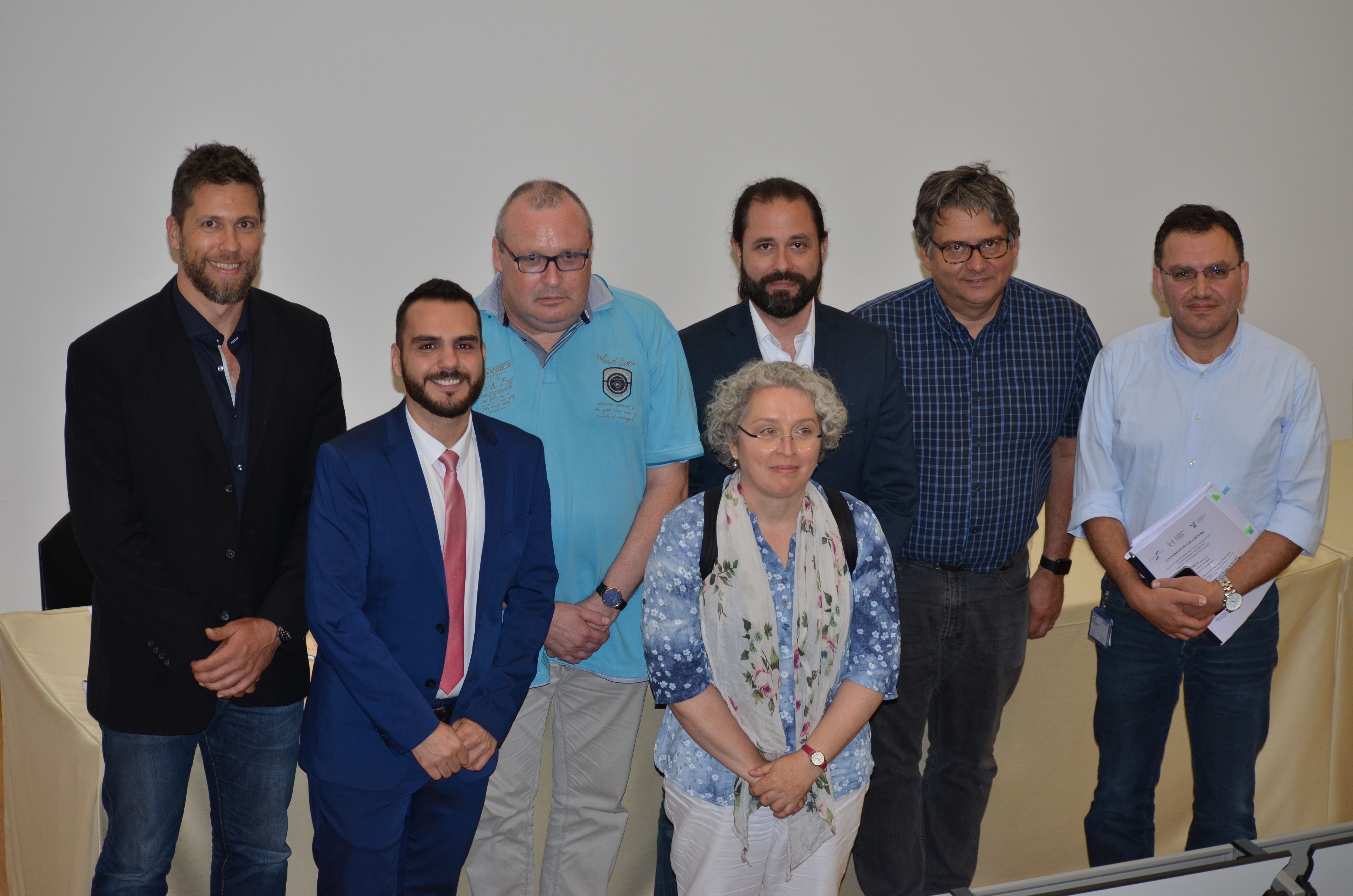Antoun Al Absi has carried out a four-year PhD project at LIH studying the role of the actin cytoskeleton in breast cancer cell resistance to natural killer (NK) cells. At his defence in Luxembourg on 6th July 2018, he successfully obtained his doctorate title from the University of Strasbourg. The defence committee gave exceptionally positive feedback on his scientific output as well as his profound motivation to push the boundaries of knowledge in cancer research.
Antoun, a French-Syrian national, started his PhD in 2014 after having completed a Master in Pharmacology and a training on clinical trials. Funded by an AFR PhD grant of the Luxembourg National Research Fund (FNR), for which he had to apply several times, he had been working in the Cytoskeleton and Cancer Progression Research Group (Laboratory of Experimental Cancer Research, Department of Oncology) under the supervision of Dr Clément Thomas.
Cancer cells have evolved multiple escape mechanisms to overcome immune defences such as the attack by NK cells. Antoun investigated how breast cancer cells can escape from NK-mediated cell death. He took a closer look at the configuration of the actin cytoskeleton in tumour cells at the immunological synapse, which is the contact interface between the tumour cell and the NK cell. Using advanced microscopy techniques, he observed an actin accumulation at the level of the immunological synapse in tumour cells resistant to NK cytotoxicity. The young researcher’s findings indicate that the actin response drives breast cancer cell resistance to NK-mediated cell lysis and could thus present a target for an effective NK-based immunotherapy. A manuscript with the results has been accepted and will be published soon in Cancer Research, an internationally respected journal. Antoun is also co-author on two publications reporting on the molecular mechanisms of metastasis formation in breast cancer.
The thesis assessment committee evaluated Antoun’s work as “excellent” at the defence. The members complimented on the quality of the oral presentation, the pertinence of the answers to their questions, the hard work behind the research project as well as the maturity of the candidate. They were particularly impressed by the novelty and originality of the research results uncovering a new biological process in breast cancer immune resistance.
Following the committee’s comments, PhD supervisor Dr Thomas expressed: ‘Antoun was a key member of our team, very sociable and supportive to his colleagues. I consider him as a highly talented and hard-working researcher. Being very autonomous, he could spend days or weeks on experiments and then suddenly appear in my office to present a fascinating set of new data.’
Antoun comments on his PhD experience: ‘Getting funding from the FNR for my PhD project was not easy, but then I finally got the chance to work on the topic that I developed together with my supervisor. The project involved a lot of work on the microscope, which I enjoyed very much. I am grateful that I could be part of a great team and the stimulating research environment at LIH.’

Antoun with his thesis assessment committee.
From left to right: Dr Clément Thomas (LIH - PhD supervisor), Antoun Al Absi (LIH), Dr Jacques Zimmer (LIH - external examiner), Dr Catherine-Laure Tomasetto (IGBMC, Strasbourg - chair and internal examiner), Dr Juan Jesus Garcia Vallejo (VU University Medical Centre, Amsterdam - external examiner), Dr Guy Berchem (LIH/CHL - Head of Research Unit, not part of committee) and Dr Bassam Janji (LIH - invited member)
